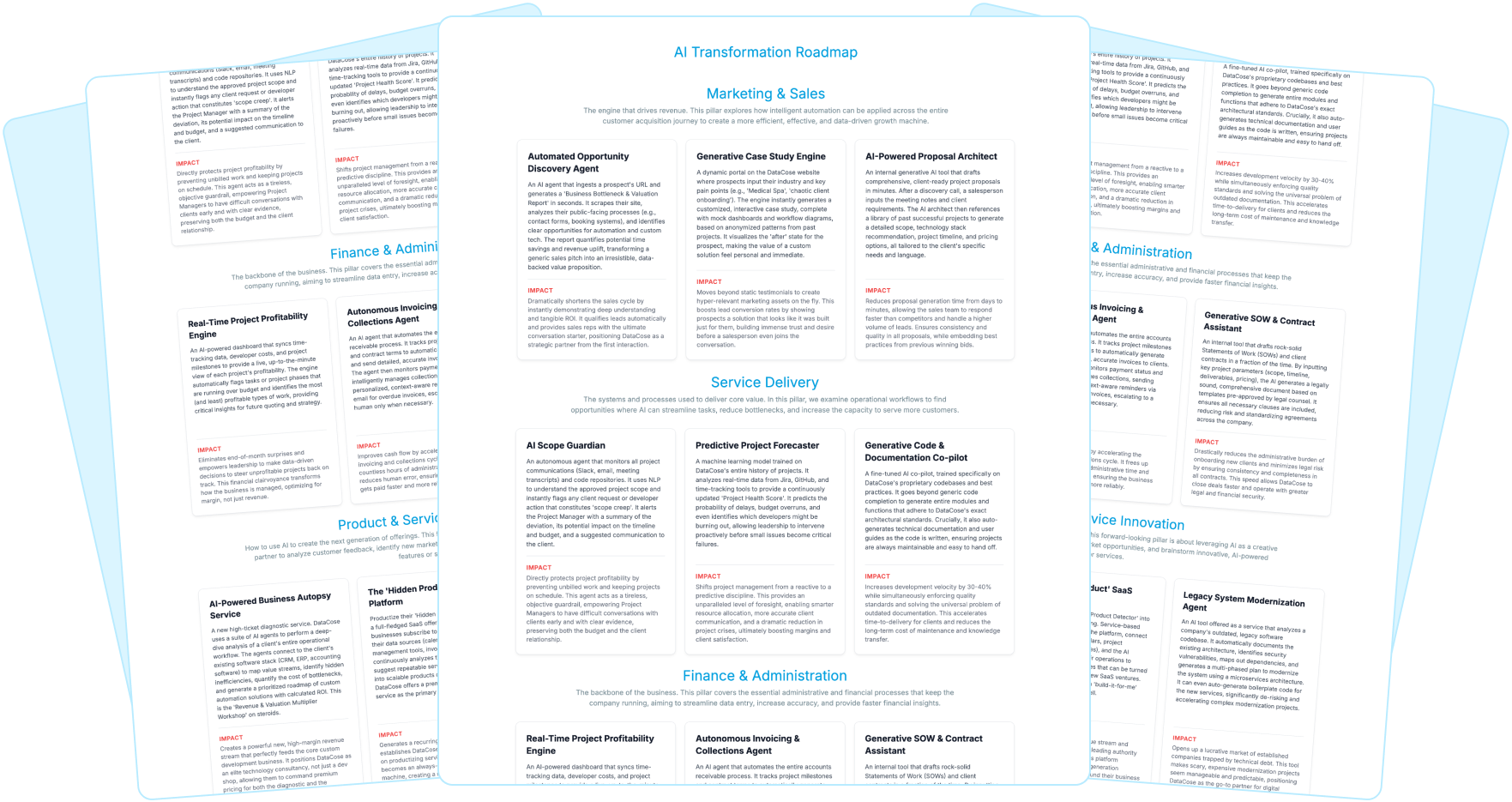Training and developing employees has always been a challenge especially for fast-growing companies. Traditional learning methods are expensive, time-consuming, and hard to scale. But today, artificial intelligence is changing the game.
Smart companies are using AI in training and development to deliver personalized learning, automate onboarding, and upskill their teams without bloating their budgets or adding more complexity.
In this article, we’ll explore how AI is reshaping employee development, show examples of what’s working today, and explain how your company can apply the same strategies with the right AI software development services.
The Problem With Traditional Training
For most companies, employee training looks something like this:
- Static slide decks or PDF manuals
- One-size-fits-all onboarding sessions
- A library of outdated videos or LMS modules
- Little to no data on whether employees retained or applied what they learned
This approach creates two major problems:
- It’s inefficient. You spend time and money building content that quickly becomes outdated or underused.
- It doesn’t scale. As your team grows, your training team (or HR department) becomes overwhelmed trying to keep everyone aligned.
This is where AI steps in.
What AI Can Do for Training and Development
AI enables a smarter, more adaptive way to deliver learning at scale. Here are just a few capabilities:
- Personalize training content based on employee roles, skill gaps, or learning history
- Generate microlearning modules using existing materials or AI-generated summaries
- Automate onboarding workflows, making Day 1 smoother and more consistent
- Simulate real-world scenarios (especially useful for sales or customer service teams)
- Track learning engagement and outcomes with real-time analytics
According to a 2024 LinkedIn Workplace Learning Report, 93% of organizations say upskilling and reskilling are top priorities but only 36% believe their current tools are effective.
AI closes that gap.
Use Case 1: Personalized Learning Paths
Most companies offer the same training to everyone. But different roles and skill levels require different content, pace, and formats.
AI helps you:
- Assess an employee's current knowledge and recommend the next best learning module
- Adjust complexity and delivery format in real-time based on progress
- Eliminate irrelevant content and reduce learning fatigue
Use Case 2: AI-Generated Training Content
Creating training materials from scratch takes time especially if you want them to be high-quality and role-specific. With AI:
- You can convert internal documentation into structured lessons
- Use AI to summarize long-form content into key takeaways
- Create quizzes, flashcards, or simulations instantly
Use Case 3: Automated Onboarding Workflows
New employee onboarding is one of the most critical stages for long-term retention but it’s often inconsistent and resource-heavy.
AI can:
- Deliver role-specific onboarding checklists and video walkthroughs
- Answer FAQs via chat (without adding burden to HR)
- Track progress and send reminders for unfinished tasks
Get 12 AI Opportunities Tailored to Your Business in 60 Seconds
In 60 seconds, you’ll get a custom report showing how AI can:

Save you hundreds of hours

Unlock new revenue streams

And give you a serious edge over your competitors
Just drop in your website. Scan it and see exactly where AI fits in your business.

Use Case 4: AI Coaches for Soft Skill Development
Soft skills like communication, leadership, or negotiation are hard to train with slides. AI-powered coaching tools can simulate scenarios and provide real-time feedback.
Common applications:
- Sales call simulations with AI-generated objections
- Conflict resolution practice for managers
- Instant feedback on tone, clarity, or structure during presentations
Use Case 5: Real-Time Analytics and Skill Tracking
Traditional training programs often lack visibility. AI tools can track:
- Time spent on each module
- Quiz performance and retention over time
- Skills gained vs. baseline competencies
This gives leaders a live dashboard of team capability and helps you identify who’s ready for advancement or who needs support.
The Business Impact
Implementing AI in training and development isn’t just a tech upgrade, it’s a business advantage. Companies using AI to support learning report:
- 40–60% faster ramp-up time for new hires
- 25–35% reduction in training costs
- Higher employee satisfaction and retention rates
Most importantly, AI frees your leadership team and HR staff from repetitive tasks so they can focus on growth, not micromanagement.
How to Get Started with AI
You don’t need to overhaul your training process overnight. Here’s how to start:
- Identify one high-friction training workflow (e.g., new hire onboarding or sales training)
- Audit existing materials (videos, documents, decks) that can be repurposed
- Work with an AI development partner to build a lean prototype
- Test and refine the system with a small group before scaling it company-wide
Whether you’re onboarding 3 people a month or training 300, the principles remain the same.
At DataCose, we help growing companies apply AI where it matters most like training, onboarding, and internal operations. We don’t just build software. We help you:
- Analyze inefficiencies in your current workflows
- Identify where AI can add the most value
- Build lightweight tools that grow with your team
Book your free 1:1 AI Training Workshop and get:
- A review of your current training processes
- Clarity on where AI can deliver the most ROI
- A roadmap to launch your first AI-powered workflow
Claim Your 1:1 AI Training Workshop →
You Might Also Like:
- The Future of AI in Business
- Steal These 5 AI Use Cases from the World’s Most Efficient Companies
- AI Tools for Small Business
- Will Software Developers Be Replaced by AI? A Leader’s Guide to Future-Proofing Tech
- How to Spot Artificial Intelligence Business Opportunities Inside Your Own Company
- What Founders Get Wrong About AI





